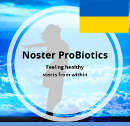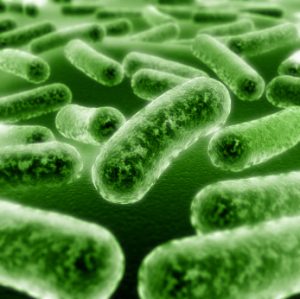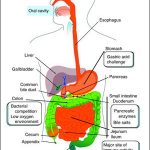Lactobacillus plantarum is very versatile and adaptive therefore can survive in many environmental conditions. It can do so because of its ability to use various types of carbohydrates for energy via fermentation. It can withstand the harsh conditions of the human intestinal tract, that is the acid of the stomach and the bile salts of the small intestine. This makes it an ideal candidate for a probiotic and it is found in our probiotic, Noster ProBiotics
It is found in yoghurt, cider, wine, sauerkraut, pickles, cheese, chocolate, and other fermented foods.
Lactobacillus plantarum is a bacteria we all need in our diet from birth to the day we draw our last breath.
From Wikipedia, the free encyclopedia
| Lactobacillus plantarum | |
|---|---|
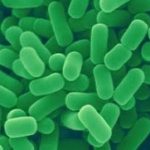 |
|
| Scientific classification | |
| Domain: | Bacteria |
| Phylum: | Firmicutes |
| Class: | Bacilli |
| Order: | Lactobacillales |
| Family: | Lactobacillaceae |
| Genus: | Lactobacillus |
| Species: | L. plantarum |
| Binomial name | |
| Lactobacillus plantarum (Orla-Jensen 1919) Bergey et al. 1923 |
|
Description of the Lactobacillus plantarum
Lactobacillus plantarum was first isolated in human saliva but is found in a wide variety of environments from fermented foods eg sauerkraut and pickles, some cheeses as well as anaerobic (no oxygen) plant matter.
In mammals, including humans, Lactobacillus plantarum is found from the top of our gastrointestinal tract, the mouth, in the saliva, to the bottom in the anus.
Health Benefits of Lactobacillus plantarum in Brief
Healthy colonies of Lactobacillus plantarum in our GIT protect us from harmful bacteria in several ways.
- Prevent the pathogens (harmful bacteria) from attaching to the intestinal wall, and the mucosal lining by mucosal binding and colonization.
- Prevents translocation, that prevents pathogens from penetrating the GIT wall. This is achieved by binding and colonization.
- Competes with the pathogen for nutrients.
- Produces chemical compounds, hydrogen peroxide, benzoic acid and bacteriocin, that are bactericidal (destroy bacteria) thereby regulating their growth.
- Stimulate the secretion of mucin, a mucous substance by the epithelial cells lining the GIT, this hinders the growth of pathogens.
- Tolerance to a variety of Conditions (eg. pH in the stomach and bile acid in the small intestines).
- Prevention or reduction of inflammation by modifying the secretion of pro-inflammatory cytokines and other associated factors.
The result is there is no food, no room to live and a hostile environment so the pathogens pass harmlessly through the GIT and are unable to invade. This is the first line of defence, don’t let them in.
Another major benefit is the reduction of inflammation, especially in the lining of the gastrointestinal tract.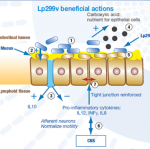
An exciting possible use for Lactobacillus plantarum is using it to deliver certain drugs and proteins to the body.
A fairly rare ability is producing L. lysine, a beneficial amino acid. This alone is a reason to use this as a probiotic.
Probiotics effectiveness is dependent on the ability to reach the site of action. It has to pass through the acid stomach into the alkaline small intestine. The small intestine has bile salts, which are surfactants, that can severely damage the organism.
Lactobacillus plantarum and other probiotics assist in the general digestion of foods and the absorption of nutrients. They metabolise fibres and sugars into amino acids, vitamins and fatty acids making them available for absorption.
Therapeutic uses of Lactobacillus plantarum
Chronic Digestive Condition: Irritable Bowel Syndrome (IBS)
This is a common problem, affecting 10% to 20% of developed countries. Interestingly, it is a developed country. Excessive cleanliness and too many Caesar babies are some of the causes. In 2012 it was estimated that 100 million people suffered.
Research has shown that 95% of sufferers had a reduction in symptoms when taking Lactobacillus plantarum. This is pretty phenomenal when considering other drugs and their effectiveness. Its success is partly due to its ability to suppress the growth of a gas-producing bacterium, reducing bloating and discomfort. The reduction in the inflammation of the GIT lining also helps
Symptoms are unpleasant including
- abdominal pain
- flatulence
- bloating
- diarrhoea
- constipation.
These affect the sufferers’ quality of life and impact on their daily activities. Mainstream medication has very limited effectiveness and no long-term cure. They are merely attempts at symptomatic relief and include antispasmodics or anti-depressants at low doses while anti-diarrhoeal or laxative drugs are given.
Research has shown the effects of bacteria on the symptoms hence the effectiveness of the correct probiotics. (See Noster ProBiotics)
Improving gastrointestinal (GI) health with the consumption of the correct probiotics has a marked effect on reducing symptoms. As we said earlier 95% of sufferers had relief such as
- Reduction of flatulence and bloating
- Reduction of abdominal pain
- Normalization of frequency and volume of stools
- Improvement of general gastrointestinal health
Autoimmune Disease: Inflammatory Bowel Disease (IBD)
IBD is a group of gastrointestinal diseases that, surprisingly, cause inflammation of the GIT. They include Crohn’s disease and ulcerative colitis.
Symptoms include
- abdominal pain
- vomiting
- diarrhoea
- hematochezia (bloody stools)
- weight loss
There are others but these are the most common.
Quality of life is affected by these symptoms and greatly restricts activities.
Conventional therapies are pretty ineffectual, again treating symptoms and not very effective. The treatment usually involves steroids for a long period and sometimes surgery. The probable cause of IBD is an autoimmune problem, with the regulatory response being mute or ineffective.
Ulcerative Colitis
This is one of the IBD diseases, see above
Crohn’s Disease
This is one of the IBD diseases, see above
Colitis
This is one of the IBD diseases, see above
Leaky Gut
This is an increased bowel wall permeability. The barrier between the inside of the GIT and the circulatory system is a single layer of cells thick, from the oesophagus to the anus. The advantage is that nutrients are absorbed readily. The downside is damage and inflammation allows everything in. The damage could be due to antibiotics, stress, various medications, including nonsteroidal anti-inflammatory drugs, as well as steroids, harmful bacteria and glycated proteins. The increased permeability results in inflammation. As has been shown Lactobacillus plantarum reduces or removes all these symptoms by protecting the GIT lining.
Depression
This is an exciting discovery, showing that probiotics can also be used to treat depression. Lactobacillus plantarum increases hippocampal brain-derived neurotrophic factor. This is another pointer to the fact that excessive cleanliness is part of our overall problem in the developed world. Interesting that more women are depressed than men and women are also the most pedantic about cleanliness.
Antimicrobial property
Lactobacillus plantarum produces antimicrobial substances hydrogen peroxide, benzoic acid and bacteriocin. A great treatment for many diarrhoeas caused by bacteria.
Activity against AIDS-defining illnesses
The gut is the main area of immune response when the body is infected with HIV. The gut’s immune response is to produce IL-1β, but this, unfortunately, causes its own damage by removing the lining of the intestine resulting in diarrhoea. This damage allows other pathogens to invade. The Lactobacillus plantarum reduces the inflammation caused by the IL-1β and increases the repair process.
Antibiotic treatment
Lactobacillus plantarum is resistant to antibiotics and is thus ideal to be taken with them to prevent diarrhoea from fungal overgrowth.
Other conditions that are treated by Lactobacillus plantarum
Pregnant mothers can increase healthy bacteria in the birth canal to improve their newborn babies’ immune system.
Newborn babies getting a small amount soon after birth can help prevent colic and ensure they have the correct bacteria in their gut.
Autistic children often have digestive problems which are improved by probiotics.
Attention Deficit Disorder ADD/ADHD have improved when on a probiotic.
Cholesterol-lowering with probiotics has been shown in various research papers.
